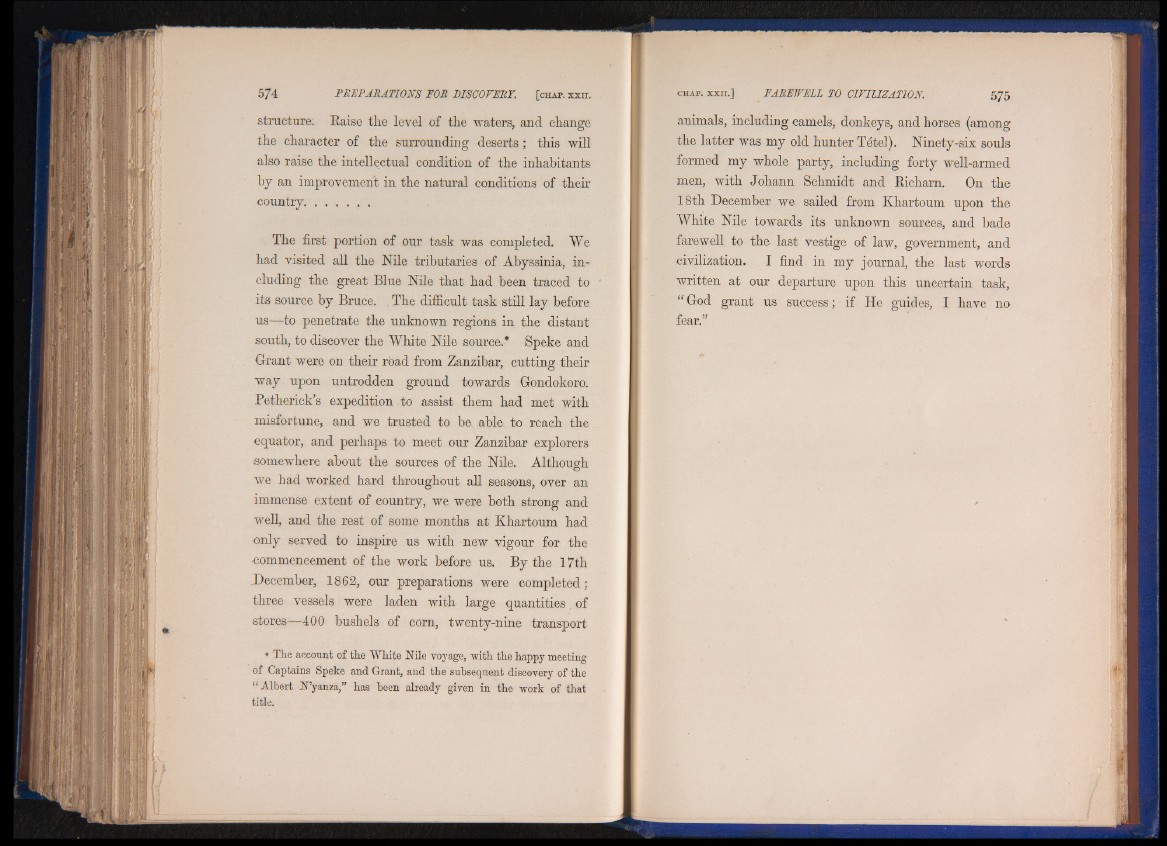
structure. Raise tlie level of the waters, and change
the character of the surrounding deserts; this will
also raise the intellectual condition of the inhabitants
by an improvement in the natural conditions of their
country. . . . . . .
The first portion of our task was completed. We
had visited all the Nile tributaries of Abyssinia, including
the great Blue Nile that had been traced to
its source by Bruce. The difficult task still lay before
us—to penetrate the unknown regions in the distant
south, to discover the White Nile source.* Speke and
Grant were on their road from Zanzibar, cutting their
way upon untrodden ground towards Gondokoro.
Petherick’s expedition to assist them had met with
misfortune, and we trusted to be able to reach the
equator, and perhaps to meet our Zanzibar explorers
somewhere about the sources of the Nile. Although
we had worked hard throughout all seasons, over an
immense extent of country, we were both strong and
well, and the rest of some months at Khartoum had
•only served to inspire us with new vigour for the
•commencement of the work before us. By the 17th
.December, 1862, our preparations were completed;
three vessels were laden with large quantities of
stores—400 bushels of corn, twenty-nine transport
* The account of the White Nile voyage, with the happy meeting
of Captains Speke and Grant, and the subsequent discovery of the
“ Albert N’yanza,” has been already given in the work of that
title.
animals, including camels, donkeys, and horses (among
the latter was my old hunter Tdtel). Ninety-six souls
formed my whole party, including forty well-armed
men, with Johann Schmidt and Richarn. On the
18th December we sailed from Khartoum upon the
White Nile towards its unknown sources, and bade
farewell to the last vestige of law, government, and
civilization. I find in my journal, the last words
written at our departure upon this uncertain task,
“ God grant us success; if He guides, I have no
fear.”